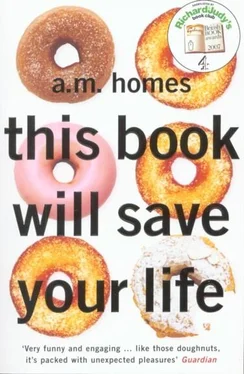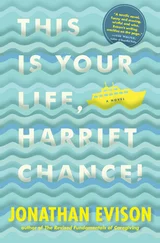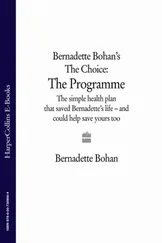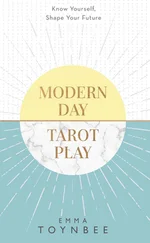"Good," he says. "When?"
"Two o'clock."
"WHAT BRINGS YOU IN?" Dr. Anderson asks when he finally comes into the room. Richard has read every back issue of Modern Maturity in the office.
"I've been seeing Dr. Lusardi?"
"Yes?"
"I wanted to follow up — you know, talk to him about some things."
The doctor flips through Richard's file. "How have you been feeling?"
"Pretty good."
"Any more chest pain or nausea?"
"No — just that one day."
"And your prostate — urgency, difficulty?"
"Same as it was, except that…"
"How about I take a listen?" the doctor interrupts, then presses a cold stethoscope to his chest. Dr Anderson makes Richard miss Lusardi all the more — Dr. Anderson is not interested in Richard himself, he is only interested in the mechanics of him.
"I thought I heard a little something — probably just a valve. Do you have mitral-valve disease? Has anyone ever mentioned it?"
"No."
"I'm going to repeat a few tests for my own peace of mind — also an EKG, we don't have a current one."
"Dr. Lusardi did one."
"It's not in your file; he must have taken it with him. Don't worry — I won't charge you." The doctor calls in the nurse.
The image of Lusardi roaming around L.A. with the rhythms of Richard's heart in his pocket is disconcerting. He wants his strip in the file, where it belongs.
"When you went to the ER, what did they do?"
"Not much — a scan to make sure I wasn't having a stroke."
"But not an echocardiogram?"
"I don't think so."
"We'll send you to someone."
Richard is starting to stress. "Relax," the doctor says, "the test won't be any good if you're not relaxed." He hooks him up, talking while watching the tick-tock of Richard's heart. "I myself had a little something earlier in the year, felt something, didn't know what, turned out I broke a string on my heart — at my age they don't even fix it, like an old car they just let run down."
"Did Lusardi really take my EKG?"
"No," the doctor says, "I'm sure it's around here somewhere, probably just misfiled."
"So where is Dr. Lusardi?"
"You tell me."
"What do you mean?"
"He's gone, vanished — turns out he wasn't really a doctor; we were on to him, which is why he ran."
"Not a doctor?"
"He wasn't who he said he was. Yale has no program in psychological internal medicine."
"Well, then, who was he? He wasn't stupid, he wasn't wrong."
"No, but he didn't have a license; he was a philosophy student from the University of Chicago who dropped out."
"He was a good talker, he listened, he understood."
"He was crafty," the doctor says, ripping the EKG tape out of the machine, bringing the tape up close to get a good look.
"What tipped you off?"
"The insurance companies; he wasn't in anyone's system, he claimed it was something about how they were entering his information, that they were reversing a 'u' and a 'z' and that it had happened before. I was feeling good about him, paternal, a young protégé, someone I could leave things to. My wife and I didn't have children. I met him at a medical conference about a year ago. As you know, I've been under a lot of stress — my wife is not well."
"How is she doing?"
"She does best when she doesn't know what's going on. When she comes to the surface, she gets frightened. That's the hardest part — when she looks scared, it's heartbreaking. She bit the dog. Are you sleeping?" the doctor asks Richard.
"Fitfully," Richard says, remembering Lusardi's story about growing up in Chicago, raised by his mom, earning his way through college and medical school surrounded by children of privilege who took everything for granted.
"I didn't worry until now — I'm going over all his records, his patient notes, to make sure he didn't mistreat anyone, reviewing prescriptions, tests. He was a con man, but he didn't really take anything."
"Except my EKG."
"Which was probably just misplaced."
"Will you press charges?"
"I'm only hoping he didn't do any harm."
"Just because he wasn't really a doctor, does that mean what he said was wrong?"
"I'd take it with a grain of salt."
"Is that a prescription?"
"It's my professional advice."
"It hurts when I pee," Richard says. "That's why I came in — I slept with someone and, well…"
"There's a moment when something comes up — your colon, diabetes, heart — and you think, So now I know what it's going to be, where it's going to end. It's always a surprise," the doctor says, lost in his own reverie. "It's not what you think. Even fortune-tellers never give you the bad news — if they can see it. And, knowing, what do you do? Do you make peace with it? Is there such a thing as a good life, a good death? I digress — sorry. So tell me again, you got a little nookie and now you wonder if you got something else along with it?"
Richard nods.
"We can test for all that. Don't worry, drink a lot of cranberry juice, and we'll have the result back in the morning; or, if you want, I can give you a big dose of penicillin now, a shot in the fanny."
"Let's wait for the results."
"Prudent," Dr. Anderson says. "We'll call you."
Richard leaves wanting to track Lusardi, to get the real story. He wants to tell him it's fucked up, but he's no one's dummy.
THE STRANGE DAYS of summer. There is no here, no there, the days are incredibly still, the light is brightly muted — it's hard to know if that's the passing of the season or poor air quality. The town has dried up — everyone who can get away has gone, making tracks for islands off Canada, Europe, Maine. Richard wakes up to hear there was a small earthquake. "A little action in Tumble Town over night. Some of you got an early start — about three-point-six on the Richter — some broken dishes, a little cracked plaster, but not too bad."
MIDDAY, Ben calls from work. "Can you come and get me?"
"Ben? Are you OK?"
"I need you to come and get me — now."
"Did something happen? Is there a problem with the car?"
"Dad!"
"I'm on my way. I'm putting on my shoes. Where should I get you?"
"I'll call you back in a few minutes. I have to go."
Richard goes zooming down the Pacific Coast Highway, takes Sunset the whole way into town, in and out of lanes, his foot on the gas.
Twenty minutes later, his phone rings, "Where are you?" Richard asks.
"I'm outside, at a pay phone; how far are you?" Ben asks.
"Ten minutes."
"I'll call you back."
"Ben?" And the line is dead.
RICHARD SPOTS HIM wandering on a side street near The Agency.
"What happened?" Richard asks, and Ben begins to cry.
"What happened — what is it?" Richard can't imagine.
And for a moment Ben is crying too hard to talk. "One of the guys, the leaders, got into the elevator with me. He pinned me against the back of the elevator and grabbed me by the balls — hard. He said things and then kissed me here, near my ear. It still hurts. I went into the bathroom, and everything down there is red. Is it something I did? Did I look at him funny? No one there knows I'm gay."
"What's the guy's name?"
Ben wipes his eyes with his sleeve.
"Hassam, Roger Hassam." Ben says. "And then, when the elevator opened, I did the weirdest thing: I ran down the steps to the security desk, flashed my ID, and said, 'They sent me to pick up the tape, I need the elevator one — now!' And the guy popped the security video out of the deck and gave it to me. 'You never saw me, never gave me anything,' I said. And the guy nodded, like this stuff happens every day." Ben hands the tape to Richard.
"Does anyone else know you have this?"
"No. My car is still in their fucking parking lot."
"How much do you care about this job?"
Читать дальше












